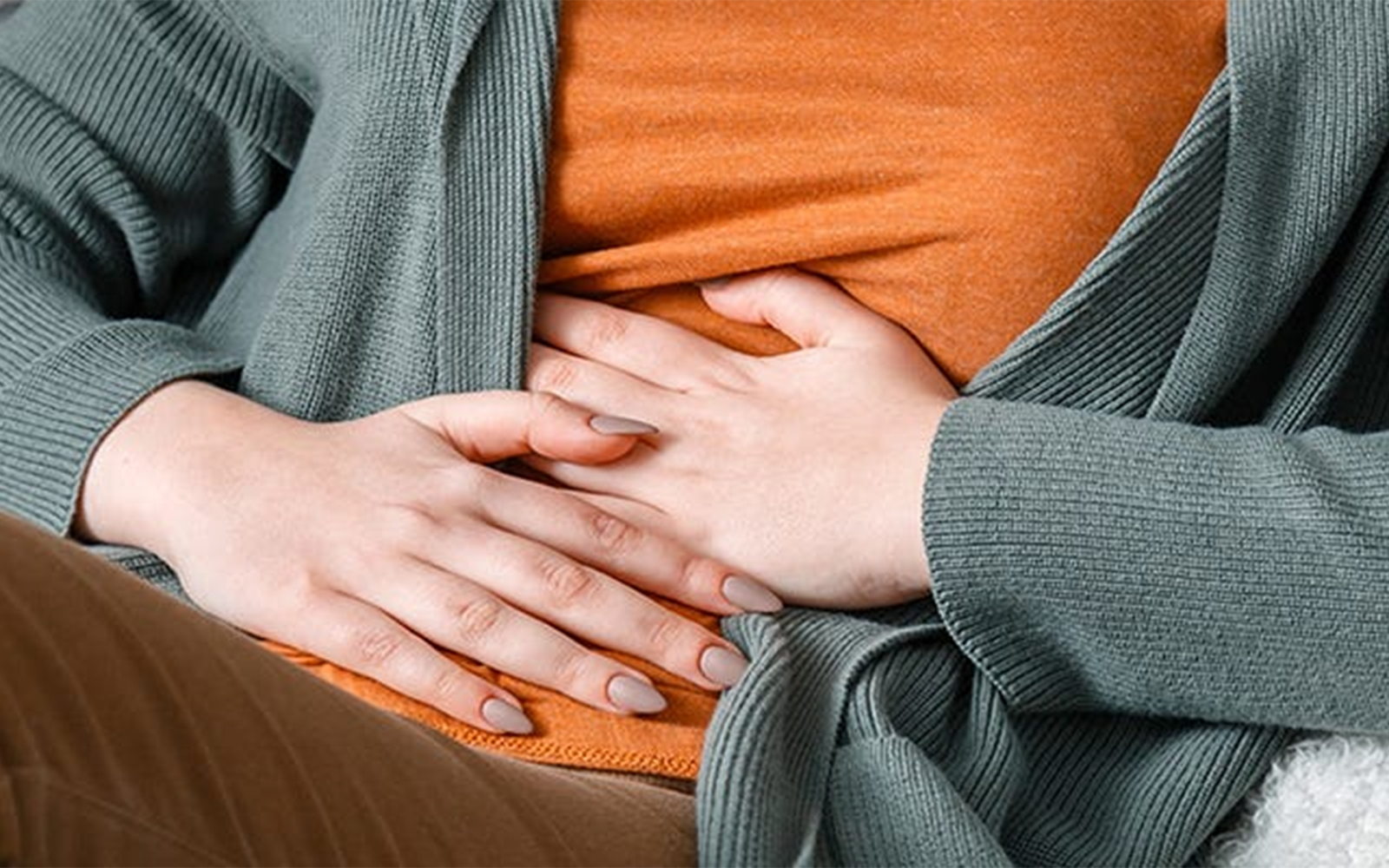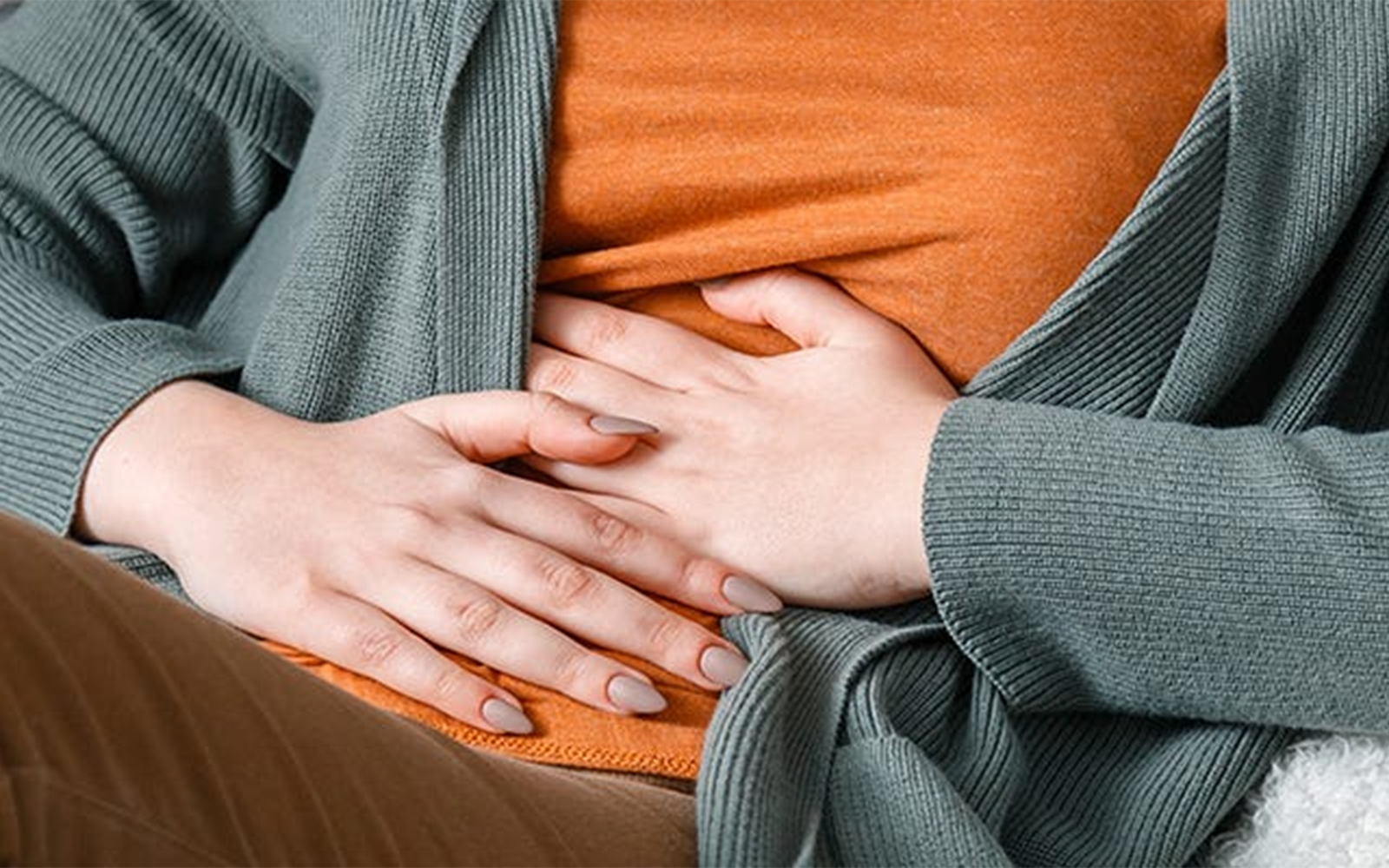The production of gas within the human digestive tract is a normal bodily function. In a fasted state, a healthy adult gastrointestinal (GI) tract contains approximately 100ml of gas distributed close to equally between the stomach, small intestine and large intestine (made up of the ascending colon, transverse colon, descending colon and distal colon) 1. Normal gas production is between 500-2000ml per day that is expelled by burping or passing wind (flatus) 2,3. Given this variation, frequency of passing wind and feelings of bloating will vary. Bloating is often referred to as sensations of gassiness, subjective discomfort and abdominal distension 3. Bloating is a common symptom described where excessive flatus is experienced.
The causes of gas or flatus are well known and include swallowing air, digestion, high fibre foods and by-products of intestinal bacteria 2. Variation in gut microbiome or beneficial flora is also thought to play a role 2. However, the causes of bloating are not as well understood 1. During normal healthy digestion of food, our intestines expand and move slightly as food passes through. Gas is produced as food is metabolized, but some individuals are more sensitive to feeling the sensation in the abdomen than others. Excessive gas production as a cause of bloating may be ruled out, although there is a suggestion that where the gas is produced, e.g. in the small intestine or large intestine, and how it moves through the GI tract plays a role in the feeling of bloating 1,4.
Mechanical causes of gas and bloating can be simple to combat therefore it’s beneficial to be mindful of this. Eating too quickly not only means large volumes of food entering your stomach and intestines quickly, but also increases the likelihood of swallowing too much air, leading to increased gas 2. Swallowing too much air can also happen when chewing with your mouth open and chewing gum. Gas is produced during regular healthy digestion, so eating a large meal will mean increased gas and could lead to feelings of discomfort 2. Watching your portion size, chewing mindfully and eating a little slower can go a long way to reducing gas and some bloating.
Gas is produced in the stomach and intestines as a normal part of digestion, though some foods will produce more gas than others. Foods rich in fibre pass undigested through the small intestine – part of what makes them so healthy, but are fermented in the large intestine by bacteria living there 5. While beneficial, gas is a by-product of fermentation. Adequate hydration can help alleviate some of the discomfort associated as it encourages motility (bowel regularity) 1,3.
Food intolerance and high intake of ‘FODMAP’ foods is linked with some gas and bloating issues. FODMAP stands for Fermentable Oligosaccharides, Disaccharides and Polyols – more simply, they are carbohydrates that are not broken down in the stomach or small intestine, so when they reach the large intestine – they may ferment, leading to excessive gas production as well as symptoms of bloating (if symptoms persist, talk to your healthcare professional). They include foods such as milk, yoghurt (lactose), onion, garlic, wheat, legumes, honey and fruits high in fructose. Following a low FODMAP diet then testing with high FODMAP foods to determine your triggers is recommended, though it is best to speak to your health care professional or accredited practicing dietitian for guidance.
The beneficial bacteria present in your gut intestinal mucosa will have an impact on the gas produced, and therefore a healthy gut environment is believed to help.
Several studies have shown the benefits of Bifidobacterium lactis probiotic supplementation for healthy bowel/colon function and supporting bowel regularity 10,11.
Always read the label. Follow the directions for use. If symptoms persist, talk to your health professional.
References
1. Seo, A,Y, Kim, N, Hyun Oh, D, 2013, Abdominal Bloating: Pathophysiology and Treatment, Journal of Neurogastroenterology Motility, 2013 Oct; Vol 19(4) pg433–453
2. Azpiroz, F, 2005, Intestinal gas dynamics: mechanisms and clinical relevance , Gut, 2005 Jul; Vol 54 (7) pg893-895
3. Lacy, B,E, Gabbard, S,L, Crowell, M, D, 2011, Pathyophysiology, Evaluation, and Treatment of Bloating. Gastroenterology and Hepatology Journal. 2011 Nov; Vol 7(11) pg729–739
4. Villoria et al. 2008. Abdominal accommodation: a coordinated adaptation of the abdominal wall to its content. Am J Gastroenterol. 2008;103, pg2807–2815
5. O'Leary C, Quigley EM. 2003. Small bowel bacterial overgrowth, celiac disease, and IBS: what are the real associations? Am J Gastroenterol. 2003; Vol 98 pg720–722
6. Ong DK, et al. 2010. Manipulation of dietary short chain carbohydrates alters the pattern of gas production and genesis of symptoms in irritable bowel syndrome. J Gastroenterol Hepatol. 2010; Vol 25 pg1366–137
7. Whorwell PJ, et al. 2006. Efficacy of an encapsulated probiotic Bifidobacterium infantis 35624 in women with irritable bowel syndrome. Am J Gastroenterol. 2006; Vol 101 pg1581–1590
8. Guglielmetti S, Mora D, Gschwender M, Popp K. 2011. Randomised clinical trial: Bifidobacterium bifidumMIMBb75 significantly alleviates irritable bowel syndrome and improves quality of life - a double-blind, placebo-controlled study. Aliment Pharmacol Ther. 2011; Vol 33 pg1123–1132
9. Ducrotté P, Sawant P, Jayanthi V. 2012. Clinical trial: Lactobacillus plantarum 299v (DSM 9843) improves symptoms of irritable bowel syndrome. World J Gastroenterol. 2012; Vol18 pg4012–4018
10. 1a. Ilberra et al, Effects of 28-day Bifidobacterium animalis subsp. lactis HN019 supplementation on colonic transit time and gastrointestinal symptoms in adults with functional constipation: A double-blind, randomized, placebo-controlled, and dose-ranging trial. GUT MICROBES 2018, VOL. 9, NO. 3, 236 – 251
11. Waller et al. Dose-response effect of Bifidobacterium lactis HN019 on whole gut transit time and functional gastrointestinal symptoms in adults. Scandinavian Journal of Gastroenterology, 2011; 46: 1057–1064.



